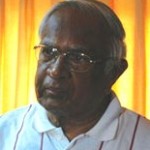The Collapse Of The Police Administration
Dr Frank De Silva retired IGP has written a very forthright and diagnostic article on why the administration in the Police Department has collapsed. He quotes from various media reports regarding the malpractices and criminal activities of the police officers who are enjoined to prevent crime and bring criminals to book and not to indulge in crime themselves. A DIG is presently being charged in courts for serious crimes. Why is it that the police officers of such high rank are indulging in such crimes?
He faults the Police Commission set up under the 17th Amendment for undermining the authority of the IGP who is the Chief Executive. Any organization requires to be headed by a Chief Executive. The British established these sound principles of public administration. The danger in a popular democracy is that the politicians would interfere in the running of the administration and under the Soulbury Constitution the independent Public Service Commission was set up to protect the public officials from interference from politicians in matters of recruitment, transfers and discipline. The Police Department was also under the Public Service Commission prior to 1972.
The former P.S.C delegated full power to the Heads of Departments including the IGP. They reserved to themselves only the appellate powers and even appeals from employees or ex-employees were required to be sent through the Head of the Department. The Head of the Department was treated as the Chief Executive and he was answerable to the PSC and not to any Minister regarding appointments, transfer discipline etc. The Head of the Department was responsible for the internal administration of the Department and no one else, not even the Minister or the Prime Minister was expected to interfere with his decision. He was the Accounting Officer as well recognizing the need for total power and responsibility for the for all aspects of administration including the financial administration of the Department although he was required to comply with the Financial Regulations of the Treasury which were enforced by the Permanent Secretaries who were the Chief Accounting Officers. All these sound principles of public administration were scuttled by the governments after 1972. The PSC was brought under the control of the Cabinet of Ministers and it opened the way for Ministers to interfere in appointments, discipline etc in departments, disrupting the internal administration of departments.


